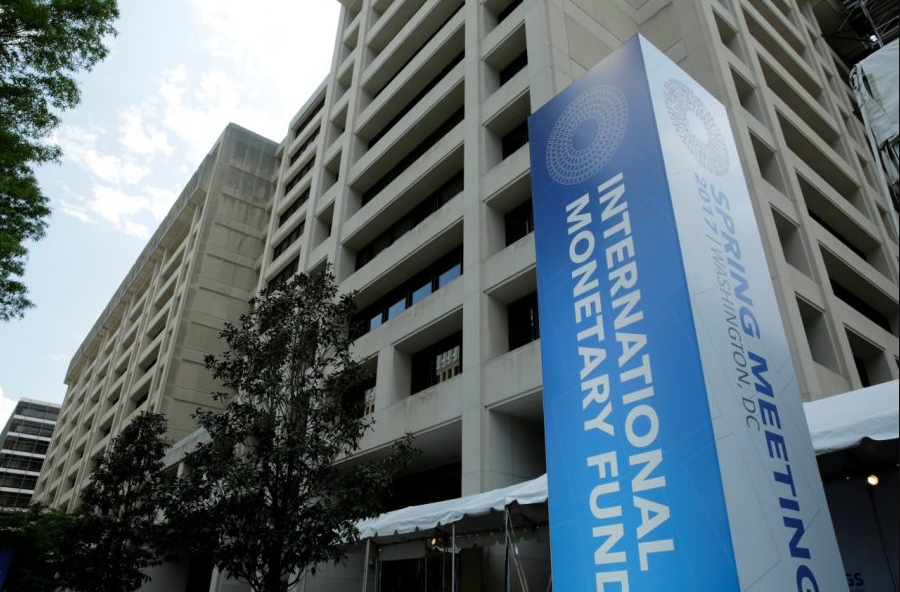In its recent assessment of Nigeria’s financial landscape, the International Monetary Fund (IMF) has called for Nigeria to methodically raise the deposit insurance levels managed by the Nigeria Deposit Insurance Corporation (NDIC).
This move aims to mirror better the current economic realities of inflation and currency devaluation.
IMF supports CBN’s policies
Highlighting the actions taken by the Central Bank of Nigeria (CBN) to mitigate banking system risks, the IMF underscored the importance of bolstering deposit insurance and enhancing stress testing procedures.
The organisation pointed out that recent stress tests conducted by the CBN revealed potential vulnerabilities, with banks’ Capital Adequacy Ratio (CAR) possibly plummeting to 6% under severe stress scenarios.
This situation has led to the commendation of the CBN’s directive for banks to retain foreign exchange gains and fortify their capital bases.
Also, the IMF lauded the CBN’s decisive steps in revoking the licenses of non-compliant microfinance banks and ensuring the protection of insured depositors.
The Fund further recommended policy actions to strengthen the banking sector’s resilience. These include a gradual increase in deposit insurance coverage, the monthly conduct of stress test scenarios with preemptive actions for banks failing to meet regulatory standards, the necessity for banks’ shareholders to infuse new capital in response to falling capital levels, and the transparent disclosure of financial soundness indicators for individual banks alongside details of regulatory compliance measures.
The recommendations in the report read:
- “Gradually increase the current amount of deposit insurance coverage provided by Nigeria Deposit Insurance Corporation to reflect inflation and currency depreciation.
- “Conduct monthly stress test scenarios and take proactive actions (restricting new lending activities and dividend distributions) whenever a bank breaches its regulatory requirements.
- “Require banks’ shareholders to inject fresh capital into their institutions whenever a bank’s capital falls below the regulatory threshold (as opposed to regulatory forbearance).
- “Disclose financial soundness indicators for each bank, rather than aggregated figures, and specific actions taken by the authorities to ensure compliance with prudential standards.”
FG’s Response
On their part, Nigerian authorities acknowledged the potential for a decline in financial soundness indicators, mirroring concerns raised in their stress testing exercises.
They reaffirmed their commitment to implementing necessary corrective measures to maintain the stability and health of the financial sector.
The report noted:
- “The authorities recognized that financial soundness indicators might deteriorate which is also reflected in their stress test exercise. They reiterated that they would take corrective measures if necessary.”
More Insights
- The Nigeria Deposit Insurance Corporation (NDIC) is on the brink of enhancing the safety net for bank depositors with a planned review of its maximum deposit insurance coverage, according to NDIC’s Managing Director/Chief Executive Officer, Mr Bello Hassan.
- This strategic move aims to adjust the insurance coverage to reflect the evolving macroeconomic landscape, marking a significant step towards bolstering depositor confidence in the financial system.
- Hassan highlighted that the NDIC is in the final stages of reassessing its deposit insurance limit, a change prompted by the need to address the impacts of recent macroeconomic developments.
- While specific details of the proposed new coverage level were not disclosed, Hassan emphasized the critical role this enhancement will play in strengthening the trust of depositors in the NDIC’s guarantee scheme.
- Currently, the NDIC insures deposits up to N500,000 for depositors in Deposit Money Banks (DMBs) and Primary Mortgage Banks (PMBs) and up to N200,000 for depositors in Microfinance Banks (MFBs), providing a safety net in the event a financial institution fails.
- Nairametrics reported in November 2023 that depositors, creditors, and shareholders of 20 liquidated banks are expected to get about N61.63 billion as paid liquidation dividends.
